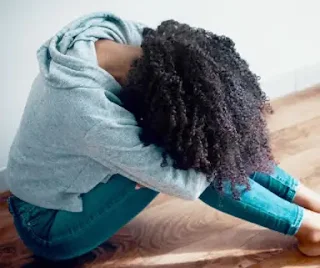What Are the Causes of Bipolar Disorder and Its Treatment Options?
Bipolar disorder is a serious mental health condition characterised by extreme mood swings—emotional highs (mania or hypomania) and lows (depression). Affecting over 45 million people worldwide, this disorder impacts thoughts, behaviour, and functioning. Understanding its causes and treatment options is essential for early intervention and effective management.
What Is Bipolar Disorder?
Bipolar disorder, formerly known as manic-depressive illness, involves cycles of mania and depression. These episodes may last days, weeks, or even months. While it affects both genders, symptoms and severity may differ by individual.
Types of Bipolar Disorder
- Bipolar I Disorder: At least one manic episode lasting seven days or requiring hospitalisation, often followed by depressive episodes.
- Bipolar II Disorder: A pattern of depressive episodes and hypomania, without full manic episodes.
- Cyclothymic Disorder: Periods of hypomania and mild depression lasting two years or more.
What Causes Bipolar Disorder?
There’s no single cause, but several contributing factors have been identified:
- Genetics: A family history of bipolar disorder increases the risk significantly. If one parent has it, the chance is 15–30%.
- Brain Structure and Chemistry: MRI scans show structural and chemical differences in the brains of those with bipolar disorder.
- Environmental Factors: Stress, trauma, abuse, or substance misuse can trigger or worsen symptoms.
- Sleep Disruptions: Irregular sleep patterns can affect mood regulation and exacerbate symptoms.
Common Symptoms of Bipolar Disorder
Manic or Hypomanic Symptoms:
- Increased energy or activity
- Decreased need for sleep
- Racing thoughts or speech
- Grandiose ideas or inflated self-esteem
- Risky behaviour (e.g., overspending, impulsive sex)
Depressive Symptoms:
- Persistent sadness or emptiness
- Lack of interest in activities
- Fatigue or low energy
- Feelings of worthlessness or guilt
- Suicidal thoughts or behaviour
How Is Bipolar Disorder Diagnosed?
Diagnosis is made through a clinical evaluation by a psychiatrist or psychologist, which includes:
- Medical history and family history review
- Mental health assessments
- Symptom tracking over time
Treatment Options
There is no cure, but bipolar disorder can be effectively managed with a combination of treatments:
1. Medication
- Mood stabilisers: Lithium is the most commonly prescribed.
- Antidepressants: Sometimes used for depressive episodes but with caution.
- Antipsychotics: Used in severe manic phases.
2. Psychotherapy
- Cognitive Behavioural Therapy (CBT): Helps manage negative thinking and behaviour.
- Family-focused therapy: Involves educating family members to support recovery.
- Interpersonal and Social Rhythm Therapy: Improves routine and reduces relapse risk.
3. Lifestyle and Coping Strategies
- Maintaining a regular sleep schedule
- Limiting caffeine and alcohol
- Stress management techniques (yoga, meditation)
- Support groups and peer communities
Real-Life Example
John, a 35-year-old software engineer, was diagnosed with bipolar II after years of battling depression and impulsive decisions during hypomanic phases. With therapy, medication, and family support, he now maintains a stable job and healthy relationships.
FAQs
- Can bipolar disorder go away? It is a lifelong condition, but symptoms can be controlled with treatment.
- Is it genetic? Yes, it can run in families but is influenced by other factors too.
- Can women have different symptoms? Women are more likely to experience depressive episodes and rapid cycling.
Internal Links
Final Thoughts
Bipolar disorder may be complex, but with the right tools—diagnosis, medication, therapy, and support—people can lead full, productive lives. If you or someone you know shows signs, don’t wait. Early help can change everything.

